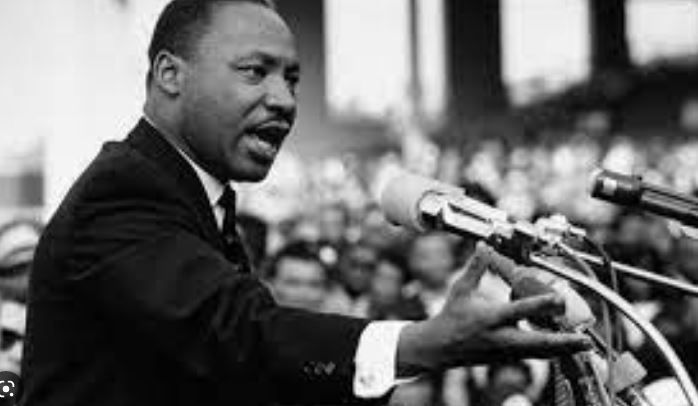Thomas Tarurongo Wynne: Love one another and lay down our lives for each other in deep, meaningful service
Saturday 8 April 2023 | Written by Thomas Tarurongo Wynne | Published in Editorials, Opinion

Martin Luther King Jr.
If you love the words and life of Dr Martin Luther King, discover the life that influenced him – his name was Jesus, writes Thomas Tarurongo Wynne.
“Like anybody, I would like to live a long life. Longevity has its place. But I’m not concerned about that now. I just want to do God’s will. And He’s allowed me to go up to the mountain. And I’ve looked over. And I’ve seen the Promised Land. I may not get there with you. But I want you to know tonight, that we, as a people, will get to the promised land!” These are the words of Dr Martin Luther King as he spoke on the 3 April 1968, at the Mason Temple (Church of God in Christ Headquarters), Memphis, Tennessee. He would die the following day assassinated while standing on the balcony of his hotel.
Martin Luther King’s “body” was killed by an assassin’s bullets but not his words, his sentiment or his love for people and love for God. A bullet took his life but not his legacy. A bullet took his voice but not the sound of his voice in the generations that followed and his cry for social justice captured in his words – “We shall overcome because the arc of the moral universe is long, but it bends toward justice.” This continues to resonate today.
Let us develop a kind of dangerous unselfishness, he said in Memphis, the night before he died, and as we celebrate Easter, we reflect also on the man who influenced the man, the life that influenced the life of Dr King, and the words of whom King captured and turned into his own, but always acknowledged belonged to Jesus. This command to develop a kind of dangerous unselfishness was the life Dr King saw in Jesus, and a dangerous unselfishness that led to the cross at Calvary.
As we follow the life of Dr King, it’s so easy to forget that we follow a leader that knew what it was to be led. We have often submitted to the words that still ring out across the halls of time for justice, social justice, freedom and the love of our fellow man, forgetting that these words were not his own. The words he imbued deep in his heart from the words of Jesus compelled us to a dangerous unselfishness and service to God, to our communities and to each other.
Dr King when speaking about sacrifice, used the parable of the good Samaritan whose geography is now sown into words that mean help and sacrifice. And in the words of Dr King ... “got down with him, administered first aid, and helped the man in need. Jesus ended up saying, this was the good man, this was the great man, because he had the capacity to project the “I” into the “thou” and to be concerned about his brother.”
There is something so powerful when we do as King compelled us, and Jesus command us – love one another and lay down our lives for each other in deep and meaningful service. How do we turn the ‘I’ into ‘thou’ or ‘you’, I reflected as I read this again, contemplating Easter and that it symbolises so much more then chocolate eggs and bunnies, even if its origins are pagan. Turning the ‘I’ into ‘you’, as a heart posture, it is a critical decision of the will, and it simply places the needs of others before our own. And when that greater need requires our sacrifice, what we have in our lives, what we have in our hands, and knowing that will come at a personal cost.
Dr Martin Luther King knew this cost and paid the ultimate price for his convictions, but his life was impacted by another King; a King who died on a rugged wooden cross and would rise three days later. A King who would influence humanity in a way that no other would do, and a King that humbled himself to the point of sacrifice, so we all by bowing our heart and the knee, live a life now and in eternity that we could never have imagined. If you love the words and life of Dr Martin Luther King, discover the life that influenced him – his name was Jesus – have a blessed Easter.














































